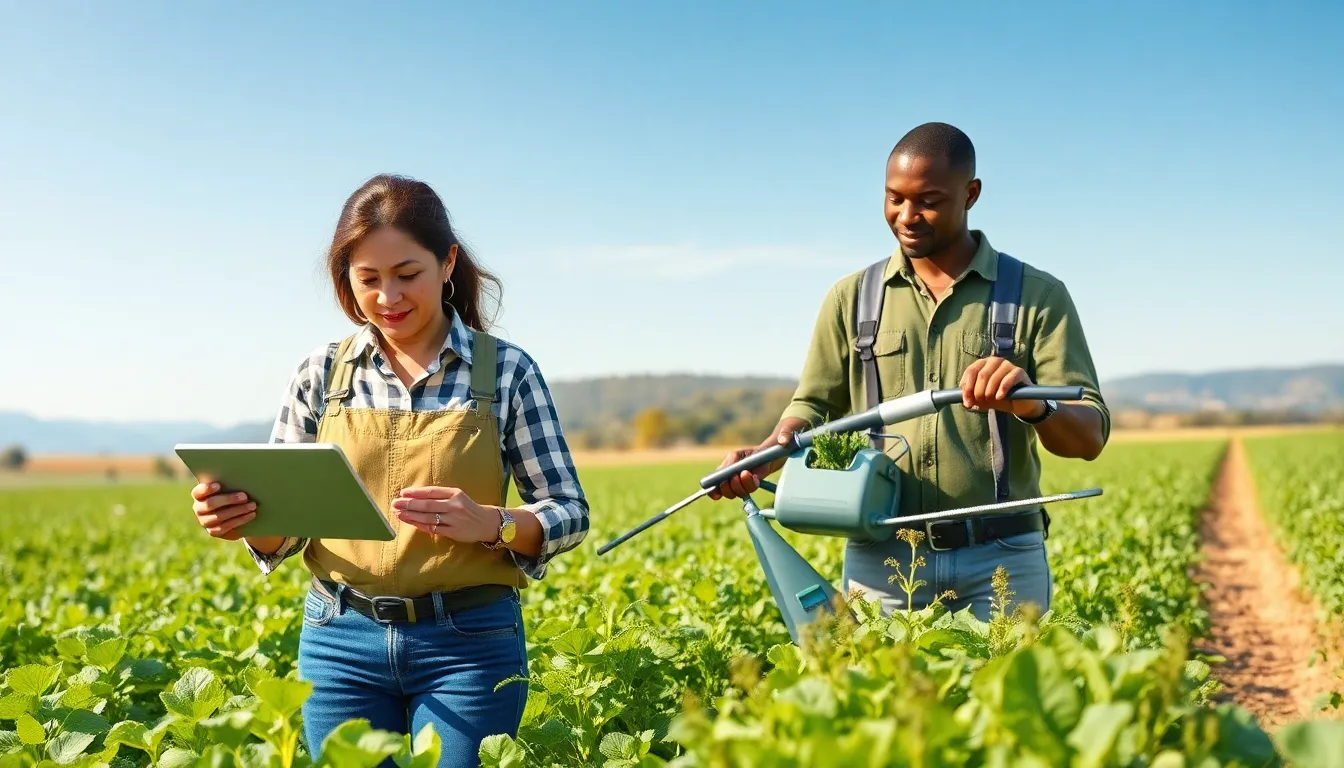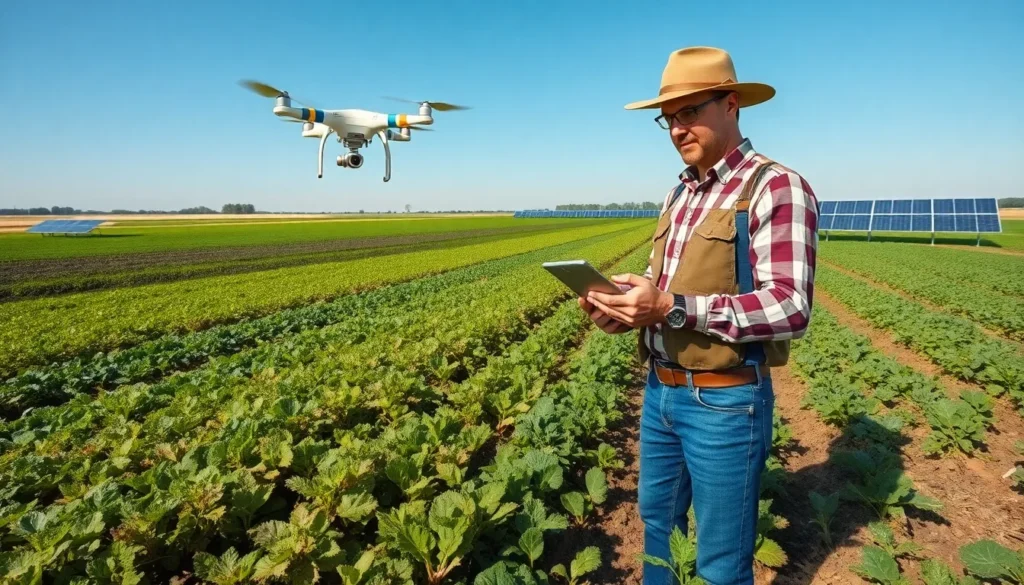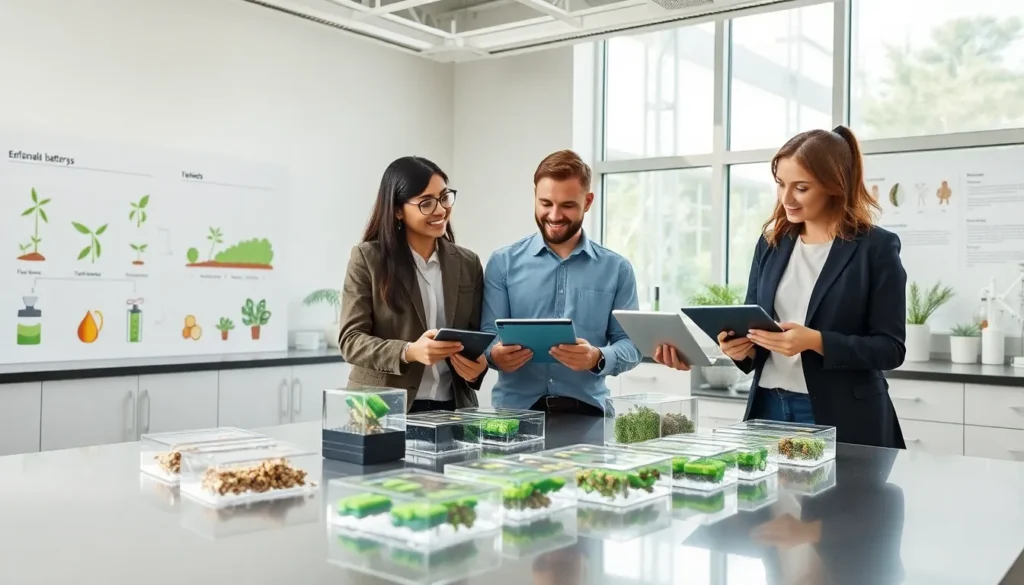Table of Contents
ToggleImagine a world where farmers wrestle with fewer weeds and pests, while simultaneously reducing their environmental footprint. Sounds utopian, right? Welcome to the age of sustainable farming technology. As the battle against climate change rages on, these innovations not only help the planet but also elevate agricultural productivity. In this text, we’ll dive deep into the techniques, benefits, and challenges of sustainable farming, proving that you can indeed cultivate profits while being green. Let’s cultivate some knowledge.
Understanding Sustainable Farming Practices

Sustainable farming practices revolve around a simple yet powerful principle: leaving the land better than it was found. This approach emphasizes methods that maintain soil health, conserve water, and promote biodiversity. Techniques such as crop rotation, agroforestry, and permaculture not only yield delicious crops but restore ecosystems too. Farmers are now starting to harness practices like no-till farming to enhance soil structure, which helps retain moisture and nutrients. In essence, sustainable farming intertwines tradition with modernity, allowing farmers to innovate while respecting age-old wisdom.
Benefits of Sustainable Farming Technologies
The benefits of embracing sustainable farming technologies can be as plentiful as a harvest in summer. For starters, these technologies help increase crop yields while minimizing resource use. Using sensors and data analytics, farmers can monitor soil health and moisture levels, ensuring that resources are utilized efficiently. Besides, sustainable practices can significantly reduce greenhouse gas emissions. An invested farmer can rest assured knowing that they are not only boosting profits but also contributing to a healthier planet. By enhancing the quality of the produce, sustainable farming provides consumers with healthier options, creating a win-win scenario.
Innovations in Sustainable Farming Technology
The landscape of sustainable farming is evolving at a breathtaking pace. One standout innovation is precision agriculture, which utilizes GPS and IoT devices to precisely apply inputs like fertilizers and pesticides. This technology allows farmers to reduce waste and increase efficiency. Another intriguing advancement is vertical farming, particularly relevant in urban areas where space is limited. These farms use hydroponic systems to maximize efficiency and reduce water usage dramatically. Drones are also making waves, scouting fields and even planting seeds to enhance precision and efficacy. With such cutting-edge technologies at their disposal, farmers are equipped to tackle production challenges head-on.
Integrating Technology into Farming Systems
Integrating technology into existing farming systems is crucial for maximizing the benefits of sustainable practices. This transformation begins with data collection. When farmers carry out tools like soil sensors and remote monitoring systems, they gain vital information about their land. Armed with this knowledge, farmers can make informed decisions tailored to their specific conditions. Also, engaging in community-based programs can bolster shared knowledge and resources, allowing farmers to adapt technological innovations collectively. Joining forces not only enhances individual practices but fosters a sense of community resilience.
Challenges in Adopting Sustainable Farming Technologies
Even though the significant advantages, the journey towards adopting sustainable farming technologies is laden with challenges. One major hurdle is the initial cost associated with these advancements. Though they offer long-term savings, many farmers find it difficult to invest upfront. Also, insufficient infrastructure in rural areas can hinder access to tech resources. Training and education also pose challenges: not every farmer has the knowledge or skills to use these technologies effectively. Overcoming these obstacles requires a collaborative effort between governments, organizations, and the agricultural community to create supportive frameworks.
Future Trends in Sustainable Agriculture
The future of sustainable agriculture holds great promise. As consumers increasingly demand transparency about food production, precision farming practices will likely gain traction. Expect to see advancements in genetic engineering, allowing for crops that require fewer resources and yield more. Innovations like artificial intelligence and machine learning will further optimize farming operations, data analytics will guide decision-making processes, and blockchain may ensure traceability from farm to fork. As sustainability becomes not just a trend but a necessity, farmers who embrace these changes will thrive in a new agricultural era.




